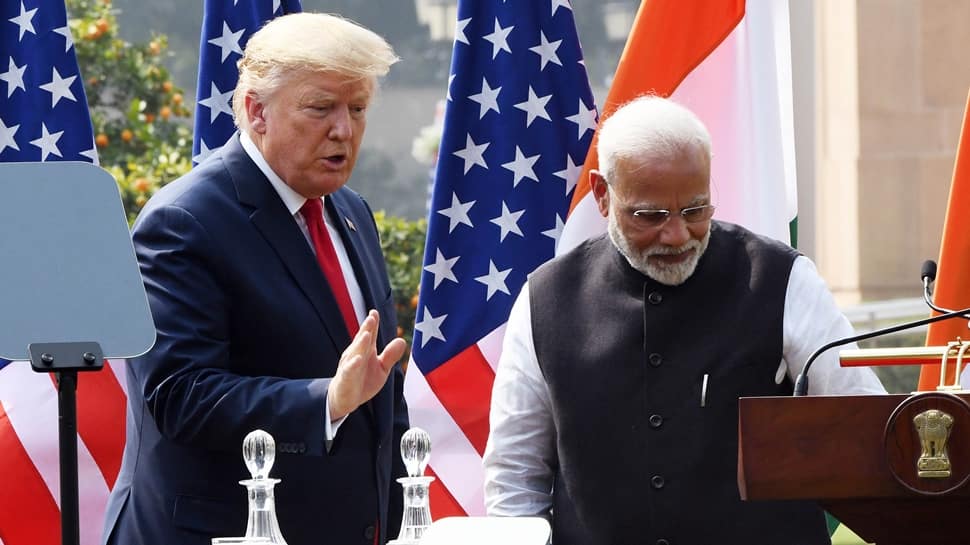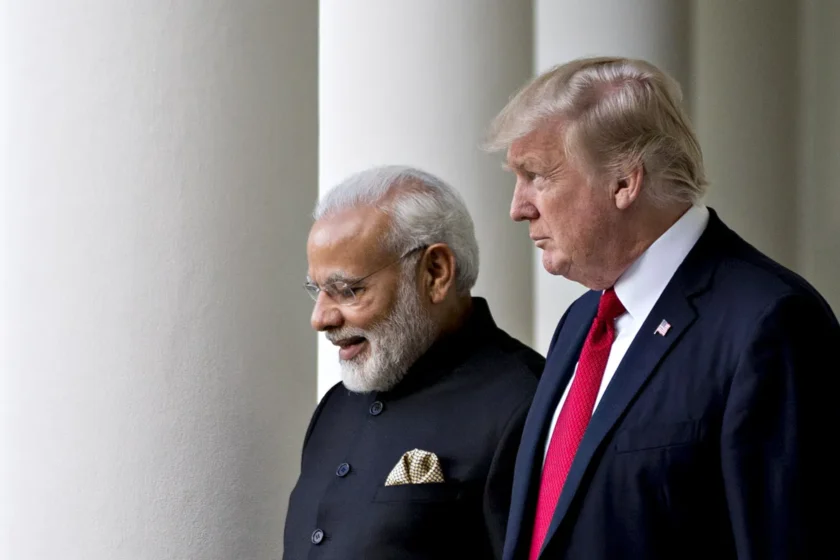Washington: The trajectory of India-US relations has undeniably ascended in recent years, reaching heights that seemed improbable just a decade ago. Robust trade figures, ambitious targets like “Mission 500” aiming for a staggering $500 billion in bilateral trade by 2030, and the launch of initiatives like the “US-India Compact” all underscore a deepening strategic partnership in the 21st century. Yet, beneath this seemingly solid foundation, a tremor of vulnerability has emerged, largely due to the unpredictable and often contradictory pronouncements of US President Donald Trump.
Trump’s recent “flip-flops” on India have not only raised eyebrows but have also rung alarm bells in New Delhi. The imposition of reciprocal tariffs, though later reversed, was an early indicator of this transactional approach. However, it was his astonishing remark following the India-Pakistan skirmishes that truly exposed the potential fragility of the relationship. Trump’s assertion that he leveraged trade as a threat to force a ceasefire between the two South Asian rivals was swiftly and unequivocally rejected by India’s Ministry of External Affairs, a rare public contradiction of a sitting US president by a partner nation. His subsequent, equally disputed claim of India offering zero tariffs on a reciprocal basis, again refuted by EAM S. Jaishankar, only compounded the unease.
Beyond the immediate diplomatic spat, the long-term implications are particularly concerning for India’s strategic autonomy, especially in defense. As former Pentagon official Michael Rubin eloquently articulated, by boasting about using trade as leverage to halt fighting, Trump not only drew a moral equivalence between terror-sponsoring Pakistan and terror-victim India but also inadvertently signaled to India that the whims of US leaders could jeopardize its future defense supply chain. Rubin’s stark assessment – that Trump “nuked the billions in potential US-India defense deals” and “pushed American defense workers under the bus to make France great again” – highlights the tangible damage done to America’s credibility as a reliable partner.

The current healthy state of India-US relations is a testament to shared democratic values, growing economic interdependence, and convergent strategic interests. However, strong relationships are built on consistent communication, mutual respect, and predictable leadership. Trump’s impulsive rhetoric and penchant for publicly airing unsubstantiated claims create a wobbly bridge, making a robust and critical partnership prone to unnecessary vulnerabilities. While trade talks continue, the deeper message India has received is that America, under certain leadership, might prove to be an unpredictable ally, forcing New Delhi to recalibrate its strategic calculus and diversify its partnerships with even greater prudence.









